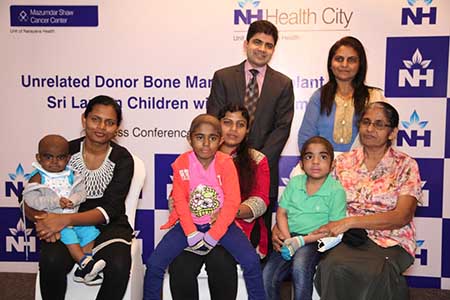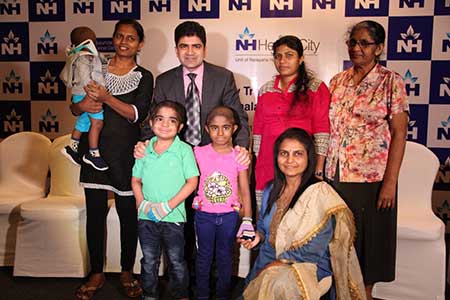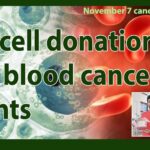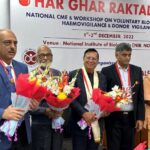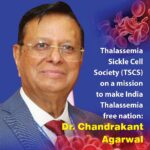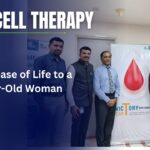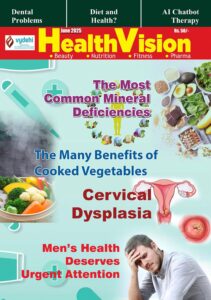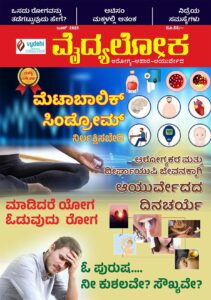Sri Lankan children with Thalassemia treated through unrelated donor BMT. Matching bone marrow cells sourced from across the world
Bangalore: Narayana Health City treats 4 Sri Lankan children suffering from thalassemia major, a life-threatening illness, through unconnected donor bone marrow transplant. The doctors obtained matching bone marrow cells from unconnected donors from around the world and transplanted at Bone Marrow Transplant Unit, Mazumdar Shaw Cancer Centre, Narayana Health City.
Patients: 15 months old Nethumi Shenaya Rajapaksha Bomaluwe, 4-year-old Suwini Umeda Shreemali Balasooriya, 5-year-old Purna and 10-year-old Mithun Dilesh Welgamage.
Thalassemia major, a rare genetic blood illness wherein, the body cannot produce sufficient red cells and the ones that are produced also perish soon leading to very low haemoglobin levels. These patients want permanent blood transfusion and has short lifespan. Sri Lanka faces various challenges to manage complex circumstances, particularly in the absence of family matched donors for transplant. The general treatment for thalassemia major is blood transfusion. Conversely, the constant transfusions can create complications like iron overload and blood – borne toxicities. Bone marrow transplant is the remedial option and hence the relatives of the 4 Sri Lankan children decided to choose this treatment.
For Narayana Health City, it was a challenging task, as all earlier efforts in another place to find identical bone marrow donors in the relatives of these children was unsuccessful. Luckily, the team could catch identical donors for all 4 children. While Suwini and Purna found deliverers in Datri Registry (India), the other was 2 found from German Registry (DKMS) in London.
Expounding the treatment, Dr. Sunil Bhat, Senior Consultant and Head of Paediatric Haematology, Oncology and Bone Marrow Transplant, Narayana Health City, said, “Other than searching human leukocyte antigen (HLA) corresponding donors for all the 4 children the largest task was to confirm receiving stem cells by the recipient’s system. In unconnected bone marrow transplant, unlike in related donors, the genetic makeup and immune systems in the recipient and the donor are very different. Therefore the risks of complications both during and post-transplant are more. Luckily, in these case their body retorted certainly to the transplant and that has aided in treatment”. He also highlighted that the probabilities of finding matched donors are far healthier from same ethnic background. As there are no unconnected donor registries in Sri Lanka, searching a donor was challenging.
Sharing his joy, Mr. Jayantha Boolasooriya, father of Suwini Umeda Shreemali Balasooriya, who is the Secretary of The Thalassemia Society said, “Back home thalassemia major is regarded as an incurable illness particularly for children without related donors. The children hinge on blood transfusion and thus surrender to mortalities very early in life. Appreciatively, we heard about Narayana Health City. We are thankful to Dr. Sunil Bhat and the whole team for treating my daughter and other 3 from this frightful sickness.” Mr Balasooriya also highlighted the necessity of donor registry in Sri Lanka.





